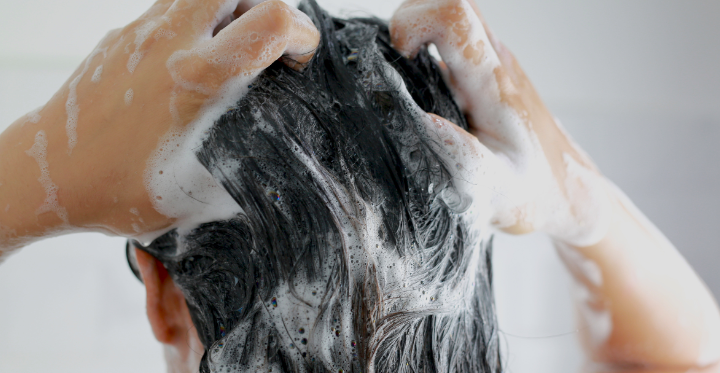Are you tired of battling greasy hair no matter how often it’s washed? The right shampoo can be a game-changer in managing oil production and keeping hair fresh. Let’s explore how to choose shampoos for an oily scalp.
Understand the Science of Oily Hair
Oily hair is caused by an overproduction of sebum on the scalp. Sebum is a natural oil that protects hair, but too much of it can lead to grease and limp strands. While this might seem like a problem with the hair, it’s actually the scalp that needs attention.
The right shampoo for oily hair should be cleaned effectively without disrupting the natural balance. Using the wrong shampoo can worsen the issue by either drying out the scalp or leaving residue. Factors like hormonal changes, genetics, and even diet play a role in sebum production. Recognising these contributors can help you make better product choices.
Choose Shampoos with Scalp-Friendly Ingredients
The right shampoo isn’t just about cleaning hair; it’s about nurturing the scalp. Ingredients that target oil production and improve scalp health can make a significant difference. A good shampoo for an oily scalp should include specific ingredients that work to balance oil levels while keeping the scalp healthy and hydrated.
For example, Salicylic acid gently exfoliates and reduces oil buildup, maclura leaf extract balances sebum production, and glycerin hydrates without greasiness. Finally, citrus aurantium peel oil provides a refreshing and clean sensation while helping to control oil and add a pleasant fragrance. These ingredients work together to cleanse deeply and maintain a healthy scalp. Choosing a shampoo with these components ensures effective results for managing an oily scalp.
Avoid Ingredients That Weigh Hair Down
Not all shampoos are created equal, and some ingredients can worsen the scalp. Heavy formulas or moisturising shampoos can leave residue, making hair feel greasy shortly after washing. Avoid products that contain silicones, which can create a film on hair and scalp.
Oils and butter-based ingredients, such as coconut oil or shea butter, are best left for those with dry hair. Instead, opt for lightweight, clarifying shampoos designed to lift dirt and oil. Staying mindful of what goes into a shampoo helps prevent unnecessary buildup.
Don’t Overlook the Importance of Fragrance
While fragrance might seem like a minor detail, it can play a role in fresh feels after a wash. Fresh, citrusy scents are often associated with a clean, grease-free scalp. Shampoos with overpowering or artificial fragrances can sometimes irritate the scalp.
Natural, plant-based scents from ingredients like tea tree oil or citrus extracts provide a pleasant, long-lasting freshness. A clean scent can help the scalp feel lighter and more refreshed throughout the day. Fragrance isn’t just an added bonus—it’s part of the overall experience.
Frequency of Use Matters
Overwashing can deplete the scalp’s natural oils, causing it to create even more sebum. On the other hand, infrequent washing can lead to buildup and a greasy appearance. For most people, washing every other day is a good balance.
Clarifying shampoos from a premium brand should be used once a week to remove stubborn residue and refresh the scalp. For daily use, opt for a gentle shampoo to maintain balance. Finding the right frequency ensures the hair stays fresh without overloading the scalp.
Experiment with Lightweight Scalp Treatments
Adding scalp treatments to a routine can enhance the effectiveness of a shampoo for oily scalp. Lightweight treatments such as scalp scrubs or tonics can help exfoliate and reduce oil. These treatments often contain ingredients like witch hazel or menthol to cool and refresh the scalp.
They work alongside shampoos to improve overall scalp health and manage oil production. Using treatments sparingly can provide an extra boost without overwhelming the scalp. Incorporating occasional treatments supports better results in the long run.
Consider Your Hair Type and Lifestyle
Fine hair tends to show oil faster, so lightweight, volumising formulas are ideal. For thicker hair, a clarifying shampoo may be needed to thoroughly clean the scalp. Active lifestyles, such as those involving frequent workouts, may require shampoos that refresh without over-drying.
Travelers or campers might benefit from portable, waterless shampoos for quick touch-ups. Climate is another factor to consider; humid environments may require more frequent cleansing with oil-control formulas. For colour-treated, look for premium shampoos that balance oil control while preserving colour vibrancy. Choosing a shampoo that aligns with individual needs ensures better results.
Choosing the best shampoo for oily hair involves more than just picking one labelled “oil control.” It’s about understanding your scalp, recognising effective ingredients, and finding a formula that aligns with your lifestyle. A shampoo for oily scalp that balances cleansing with care can reduce grease while promoting scalp health. With the right product and routine, anyone can achieve fresh, manageable hair effortlessly.

